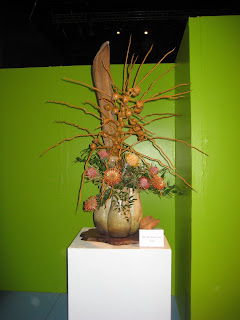
What's so great about it?
:::
There was, in the basement of my grandmother's house, gathering dust on a dark shelf with other small receptacles containing collections of bits and bobs, a little box labelled "String Too Short To Be Saved", carefully printed out in the firm and elegant capital letters of my aunt's hand (she was an artist, and the house became hers as she never married and then took care of my grandmother in her old age).
We found the box after my aunt's death whilst emptying the house so that it could be sold. "String Too Short To Be Saved" had been humorously applied to the domestic character of my great aunt, Tante Mox (Marguerite Orban de Xivry). I had always believed the phrase to be private family language, an invention of my grandmother, until I started to run across it in old Depression-era magazines. My family had managed to isolate itself from mainstream America; I grew up on a dirt road far from the reach of whatever was going on in the rest of the world; this had something to do with my parents' lofty principles. We walked half a mile to our mailbox. We did not watch television or read comic books. Once a week, we went to town with my Dad who gave us a dime apiece so we could buy penny candy. Eventually, there were ten children, of whom I was the second. My family professed strenuously to eschew the popular culture. My grandmother was an immigrant who had taken a very large step down the social ladder in moving to this country. I grew up snobbishly deprived and feeling exclusively entitled to my narrow point of view and limited experience. It was a lightbulb moment for me when I realized that we belonged to something larger than our own little institution.
So are we ready to start hoarding useless stuff again? I am not an optimist, never have been. Some of this is hard-wired, the result of genetic and cultural mishap: my father being autistic and my mother bi-polar (this is not hyperbole). They grew up in NYC during the Great Depression and preached the Gospel of Hard Times according to The Catholic Worker. My tendency is to predict the direst consequence for any forward motion in my experience: the world is always on the brink of final catastrophic dissolution. My husband is of an entirely different mind (as he is in all things, sort of a knee-jerk contrarian). For better and for worse, we have stuck it out in this weird unbalance for over 30 years now. His view is: we (personally) have survived (that is, lived through and came out the other end of) two of the Four Bad Bear Markets since 1900. Of course, we weren't around for the "Big One" which is being invoked daily in the newspapers now. No, folks, it's not the "R" word anymore, it's the Big Bad "D" word. And according to the infographics (read: charts) he's looking at, what we're in now is equivalent to, not worse than, these last two in 1973 & 2000, at least for now. Time will tell. He thinks we'll pull out (in our lifetimes, I ask?) But my arrogant isolationism doesn't allow me to accept the mainstream anxiety either. I'm not adopting his point of view because I understand or believe in it. I simply cannot let myself spin out into panic.
I think perhaps the opportunity is presenting itself to shake out old dependencies and reliances. The world order is changing rapidly. The future belongs to the kids, of whom I have none. So my commitment is tenuous. Not sure where all this will lead. Does anyone? Did anyone ever? Here is a quotation from Il Gattopardo, (The Leopard) by Lampedusa:
"We're not blind...we're just human. We live in a changing reality to which we try to adapt ourselves like seaweed bending under the pressure of water.... We may worry about our children and perhaps our grandchilddren; but beyond what we can hope to stroke with these hands of ours we have no obligations."And then
"As always, the thought of his own death calmed him as much as that of others disturbed him; was it perhaps because, when all was said and done, his own death would in the first place mean that of the whole world?"
:::
"Jeder mensch steht unter seiner Himmelskugel"—Robert Musil
:::
What a time we live in! More musings on mid-life crisis. The interview I did recently asked what mid-life meant to me and I had to say that it's the time (whatever your age) when you know you have less time left than you have already lived and you start counting up how much living you have to squeeze into that time. That is, if you have the strength (which you don't—because getting old is about loss). The biggest task is accepting and accommodating. Words, just words, but I have the same gripe with words that I have with my pictures. They are so easy to ignore, to take at face value and treat as a fait accompli when in fact they sometimes represent the most strenuous process. Of course, now I am treading in dangerous territory: the meaning of art.
:::
"I am thinking of aurochs and angels, the secret of durable pigments, prophetic sonnets, the refuge of art, And this is the only immortality you and I may share, my Lolita."—Vladimir Nabokov.
And to think that there are people out there who actually believe this is a book about child pornography.


































